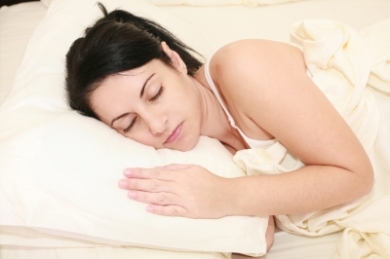 Sleep tips and myths
Sleep tips and myths
This article looks at sleep tips and myths.
Under heavy periods of stress, illness or fatigue our bodies require more sleep, not less. Yet often the pressures of work mean we stay up late, work weekends and turn to caffeine to keep us alert. Hardly surprising our sleep starts to suffer. Here we review sleep tips, as well as sleep myths to get you some healthy sleep.
Sleep is a great healer of our bodies; it repairs and regenerates tissues, builds bone and muscle and helps to build the immune system. It also enables us to process the day’s events, and rehearse future ones.
Long term lack of sleep has a particularly adverse effect on our bodies – as these required processes are unable to operate normally. A recent study suggested that our genes behave differently when faced with chronic lack of sleep; altering the function of 711 genes, including some involved in metabolism, inflammation, immunity and stress.
But before we all panic and head to bed, there are many myths associated with sleep. I remember talking with one lady who was literally unable to sleep over a period of many months. This wasn’t just insomnia, but major off the charts insomnia. She was very beautiful, was studying to be a barrister and didn’t lack energy. The body has an amazing capacity to overcome the greatest difficulties.
Common sleep tips and myths
1. If I don’t get eight hours solid sleep per night – I’m in trouble.
WRONG. Everybody is different and has different requirements. Recent research has shown that prior to the availability of electric light, we used to sleep for 3-4 hours, wake for a few hours, then sleep for another 3-4 hours. It wasn’t a case of us going to sleep, but sleeps. So if you find yourself waking up after 3-4 hours, don’t panic! Tell yourself it’s your body, it’s normal, and relax.
Secondly, simply resting our body allows many of the processes associated with sleep to have their positive effects. There are many exercises or steps we can take to help our bodies enter a more deeply relaxed state – which enables these restorative effects even if we don’t actually fall asleep. These include meditation and breathing exercises.
I have known many people who have slept only a few hours a night over many years who are healthy and fit today.
2. Alcohol helps me to sleep
YES and NO. Alcohol may help you relax, and the evidence shows that it does indeed help you get to sleep quicker. However, drinking alcohol will cause sleep interruptions in the second half of your sleep (typically hours 4-8), and can impact on your REM sleep (the phase where you dream and learning takes place). The thing about alcohol is it has a very negative affect on other parts of your body – but that’s for another time.
As an aside, “wakefulness for 18 hours makes you perform almost as though you’re legally drunk,” says Walsleben.
3. More sleep is always better
WRONG. Evidence has shown that people who sleep 6-8 hours live longer than those who sleep for more than eight (Najib Ayas, M.D., MPH, assistant professor of medicine at the University of British Columbia). Conversely there is evidence that women who slept five hours or less a night were a third more likely to gain 33 pounds or more over 16 years than women who slept seven hours, according to a Harvard Nurses’ Health Study.
Too much sleep has the same sort of issues as too little – namely a higher risk of heart problems and death. If you need more than 8 hours, make sure you know the reason why and deal with it if you can. Depression, diabetes, chronic exhaustion, adrenal fatigue, grief etc. are all examples of why you may be needing more sleep. The key here is to address the underlying cause.
4. I need drugs to sleep
WRONG. When you are unable to sleep night after night, panic kicks in. The anxiety caused by insomnia is enough to keep us awake even if we could go to sleep..
So – how to break the cycle? Many turn to prescription drugs. The problem is such drugs are designed for short term sleep problems. Those with long term sleep problems benefit from therapy including cognitive behavioural therapy (CBT). Retraining how you think about your sleep and sleeping habits as well as positively affecting how you feel (your anxiety levels) has been proven to be as effective as prescription drugs (National Institute of Health, 2005).
“About half the people who think they have insomnia may have anxiety or depression,” says Daniel Kripke, M.D., a University of California at San Diego sleep expert.
5. I’ll catch up on my sleep at the weekend
Our bodies have a natural rhythm (called our circadian rhythm) – which if we work with we will get the right amount of restorative sleep. But by depriving ourselves of sleep during the week and then trying to catch up at weekends interferes with our cycle and can cause problems in the week to come. However much we don’t want to hear it, our bodies crave consistency when it comes to sleep, and the results will generally lead to alertness, good health and plentiful energy.
A great way to reset our circadian rhythm is sunshine and blue skies. Now that spring is finally here, get out first thing in the morning to reset your circadian rhythm.
Finally – some sleep tips!
Proven sleep tips to help you to get to sleep and stay asleep;
- Go to bed at a regular time. Whether you are a night owl or a morning bird – learn what works for you and repeat it. Most people fall asleep between 10 and 11.30pm.
- Sleep in a dark room – with curtains or blinds that shut out the light.
- Sleep with as little noise or interruptions as possible. If your partner snores, suggest he (?!) sleep in another room until he has tried various anti snoring devices.
- Sleep away from electronic equipment. Turn your phone off and charge it as far as away as possible from where you sleep. Another room is best.
- If you are utterly exhausted avoid electronic equipment (TV, computers, phones) after 6pm.
- Cut out caffeine and alcohol from your diet. If you really need caffeine (which is a stimulant) don’t take within six hours of bedtime.
- Practice relaxing breathing techniques (I will write on this at some point, in the meantime use google!).
- Have a bedtime routine which is as relaxing as possible. For some this includes a warm bath, reading, scented candles and relaxing music.
- Eat a light meal before bed which includes good protein (and not any stimulants including sugar or their chemical substitutes). Good protein includes almonds, pecans or walnuts (ideally soaked in water for 12 hours and frozen). Other examples include lean chicken or turkey.
Summary
There is lots of information out there on sleep tips. Research it for yourself if you have a problem, or contact me. Books, magazines and the internet will provide a wealth of useful information. It seems that the most important thing when it comes to sleeping is to relax (read five steps to reduce stress)! Watch what we eat and what we do in the hours prior to bed. Learn what works for you, and don’t be surprised when stress, illness or stimulants negatively affect your sleeping patterns. Don’t panic when you can’t sleep, or if you wake up. Resting is the next best thing, so do that. You may end up asleep before you know it.
Sleep well!
Author: (c) Mark Bateman 22/4/13. Image David Castillo Dominici,

